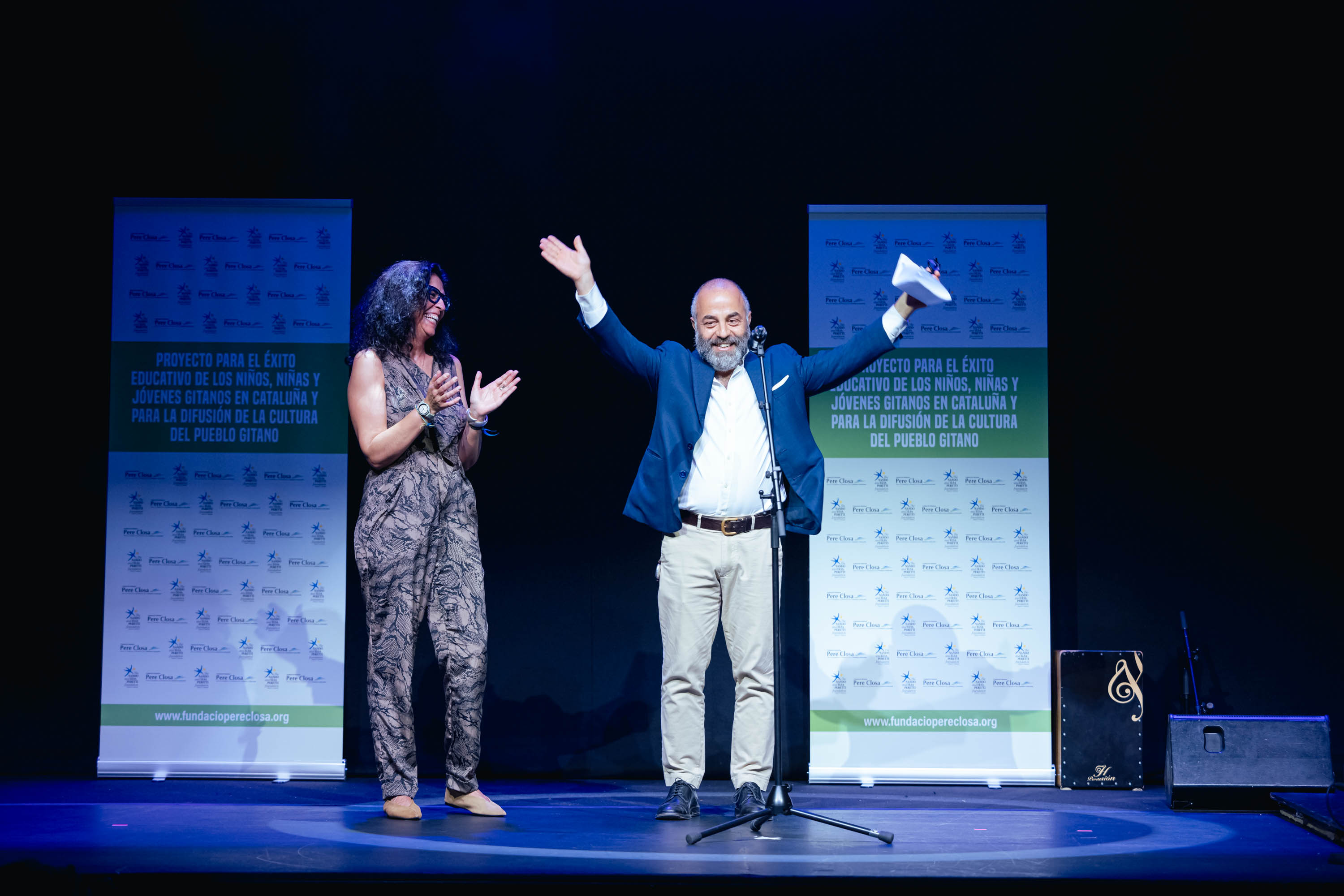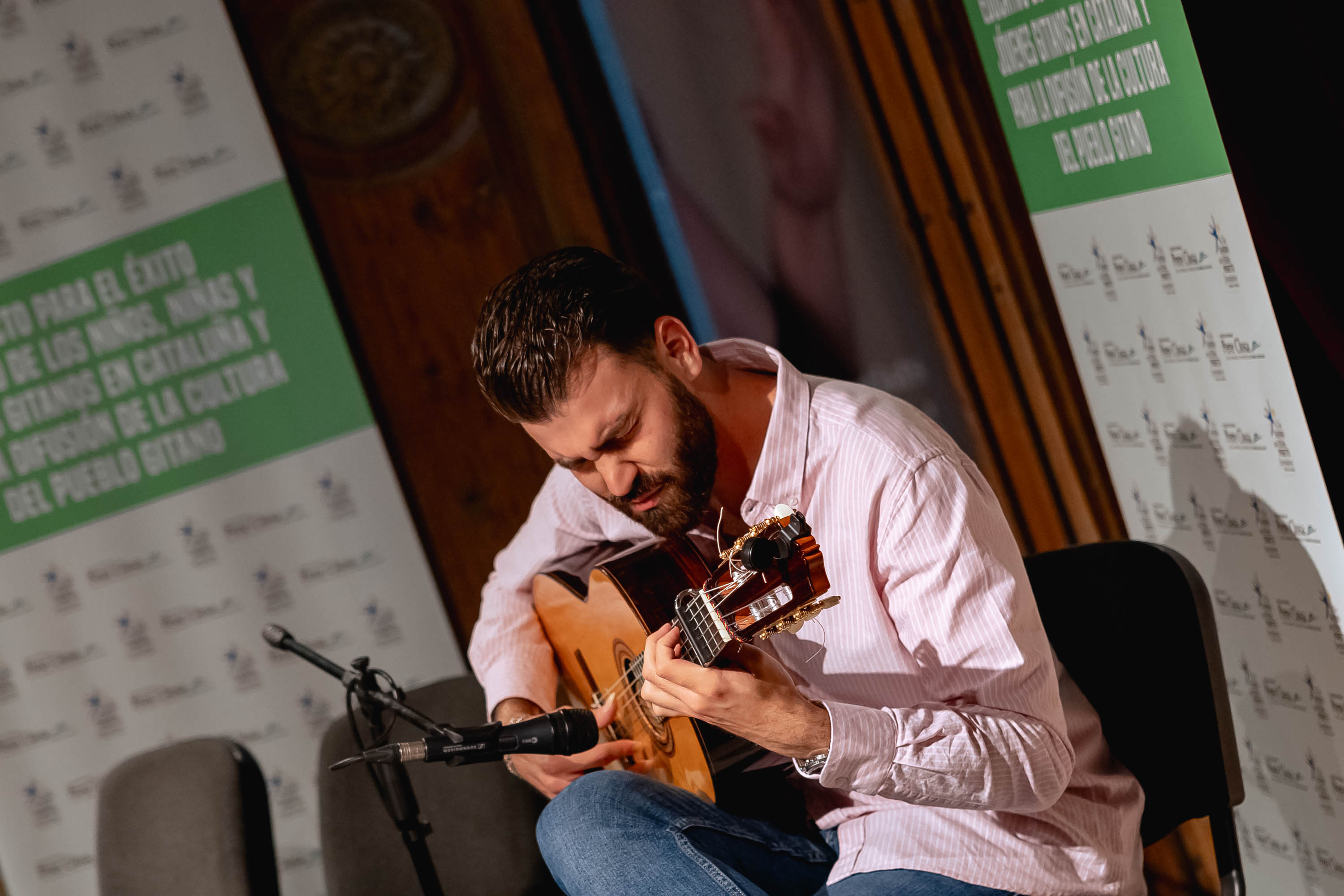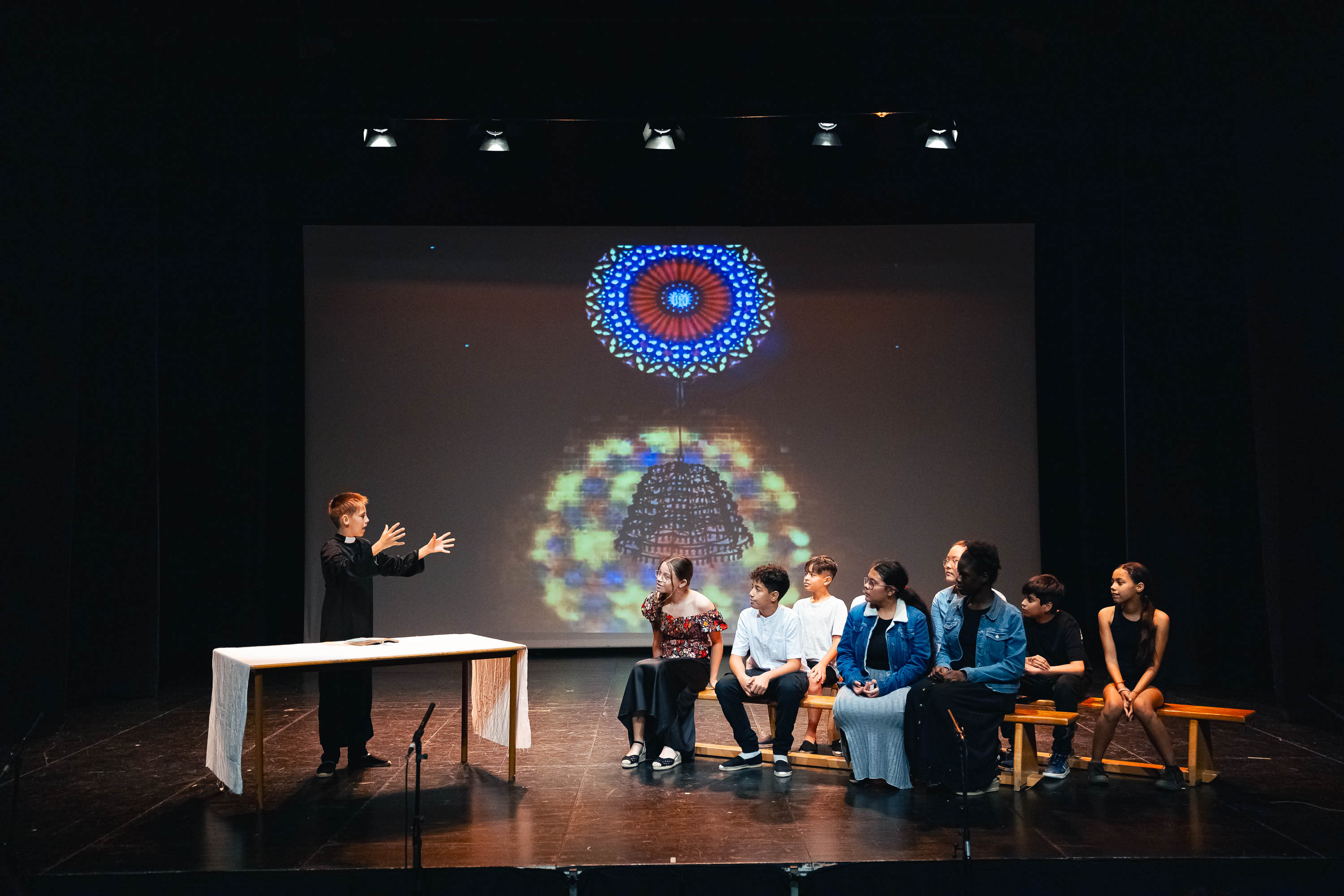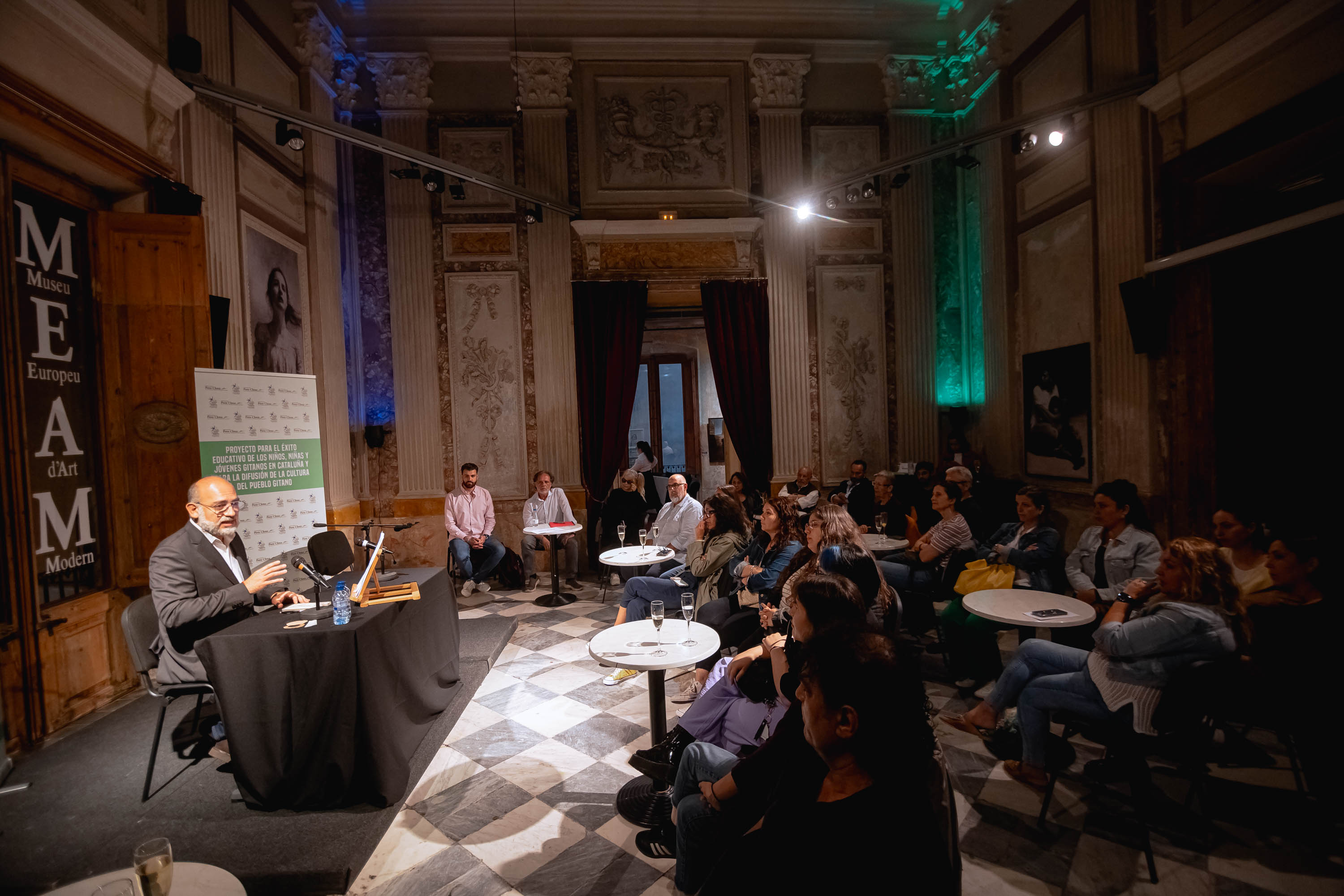
Supporting Rroma people in Catalonia through the promotion of education and the dissemination of Rroma cultural heritage
Grantee: Fundació Privada Pere Closa per a la Formació i la Promoció dels Gitanos a Catalunya
Location: Spain, Europe
Grant Cycle: 2023 – 2026
Type of Grant: three-year program support,
Delegació a Catalunya, Human Welfare
Website: fundaciopereclosa.org
Delegació
a Catalunya
The Pere Closa Private Foundation was created in 1998 by a group of young Rroma aware that a lack of formal educational and vocational training is one of the main obstacles Rroma people face in society. The Pere Closa Private Foundation believes that overcoming this deficiency will provide Catalonia’s Rroma people with more opportunities to succeed within a society outside of their own. Since its inception, the foundation has dedicated itself to supporting the Rroma people in Catalonia, and to promoting a positive image of the Rroma people to those outside of the Rroma community, while also preserving the Rroma’s rich cultural legacy.
Over the course of its 25-year history, the Pere Closa Private Foundation has promoted more than 30 projects aimed at improving the educational inclusion of Rroma children and young people in primary education, secondary education, and professional or university studies so as to give them access to the job market and be citizens with full rights, without renouncing what is essential to their Rroma culture.
The absences from school and educational struggles of Rroma children have their roots in the education system’s lack of knowledge about the Rroma identity and mistrust of Rroma families. Most schools do not understand Rroma cultural codes, and Rroma families can also struggle to understand the dynamics of a traditional school. There is widespread prejudice among educators that Rroma students do not want to study and are likely to be illiterate, while many Rroma parents believe that the teachers want to acculturate their children and make them not Rroma. As a consequence, Rroma children and youths do not perceive the cultural values transmitted by schools and institutes as their own, which leads to demotivation, absenteeism, conflict, and failure. These conflicting cultural codes can also lead to feelings of emotional isolation because Rroma students feel alone in the educational process- families do not support them and schools do not understand them. Rroma communities in Europe often live on contaminated wastelands, with little to no running water or sanitation facilities in their homes as a result of environmental racism, according to the report “Pushed into the Wastelands: Environmental Racism Against Rroma Communities in Central and Eastern Europe” by the European Environment Office (EEB), a pan-European network of environmental NGOs.
On a positive note, in general, greater awareness of the Rroma people outside of Rroma society has led to a decrease in discrimination and has given Rroma youth and women more opportunities to progress outside of Rroma society. On the other hand, there is still social and institutional discrimination and prejudice towards Rroma communities throughout Europe. This has and still does cause a high degree of illiteracy among the Rroma people and, in many cases, also creates a negative attitude towards education. Despite all this, the Rroma people have been able to preserve their language, culture, and history and Romani remains one of the most vital minority languages in Europe. About 3.5 million people speak Romani. It is even an officially recognized minority language in 16 countries. Even so, UNESCO classifies the language as “definitely endangered”. Very few boys and girls have the opportunity to learn in Rroma language classes at school, and 3.5 million people does not seem like much when you realise that there are between 12 and 14 million Rroma in the world.
Pere Closa Private Foundation works to guarantee the educational success of Rroma students by working with students, teachers, and families to facilitate their integration into the classroom and promote gender equality. Furthermore, the foundation works to publicise the rich and heterogeneous Rroma culture, in order to convey a positive image of the Rroma people that is genuine and free from prejudices and stereotypes. This helps secure the Rroma people the institutional recognition they deserve and helps earn them the respect they deserve within the rest of society.
In 2023, the project received a grant from the Nando and Elsa Peretti Foundation – Delegació a Catalunya, that provided Peretti-Pere Closa with Study Scholarships to benefit 200 students of primary and compulsory secondary education level. The project also supports 3,800 primary and secondary students from 60 educational centres primarily in Catalonia, although they may also be from other Spanish towns, and 100 adults from the general public.
Event
The Fundació Privada Pere Closa, with the support of the Nando and Elsa Peretti Foundation – Delegació A Catalunya, has organised an awardceremony at the Poliorama Theatre in Barcelona to celebrate the efforts of the most deserving Rroma children for the 2023-2024 school year.
The Fundació Privada Pere Closa is a non-profit Rroma organization that works in different locations in Catalonia to promote the educational success of Rroma children and youth, as well as those who are not Rroma and are in a situation of social and educational vulnerability. The Fundació Privada Pere Closa, thanks to the support of the Nando and Elsa Peretti – Delegació a Catalunya, wanted to honor the efforts and dedication of children and young students through the Elsa Peretti-Pere Closa Study Awards, as part of the Project for the Educational Success of Rroma Boys, Girls and Youth in Catalonia and for the Dissemination of Rroma Culture. Through education, everyone can aspire to equal opportunities, and these awards are intended to encourage younger generations to continue training and learning, with the aim of reducing the dropout rate and implementing strategies to combat school failure.
With the list of selected candidates finalized, the award ceremony took place on the 3rd of June 2024 at the Poliorama Theatre in Barcelona. Each student received their diploma along with a voucher endowed with €200 to invest in school supplies. The event was attended by Stefano Palumbo, Trustee of the Nando and Elsa Peretti Foundation, Mercedes Porras Soto, president of the Fundació Privada Pere Closa, Raquel Garcia I Sevilla, from the Education Department of the Generalitat de Catalunya, Manuela Fernández Ruiz, from the Office for Equality and Non-Discrimination of the Generalitat de Catalunya, Núria Serra I Busquets, from the Barcelona City Council, and Sandra Heredia Trucharte, from the Integral Plan of the Rroma People of the Generalitat de Catalunya. In his speech, Stefano Palumbo spoke of the deep respect and admiration that Elsa Peretti had for Rroma culture: “Elsa loved Gitanos. She saw them as free, creative and supportive, like her. She perceived them as the fruit of a time yet to come where creative education is a priority, where emotional intelligence governs relationships, where each person feels that they are part of a community, where the person is inserted into the environment.” The first edition of the Elsa Peretti-Pere Closa Study Awards was a memorable and significant ceremony that highlighted the effort and dedication of young Rroma students in their education.
Two other events have been organized to celebrate the important commitment of the NaEPF to the dissemination of the Rroma people’s culture: Rromano Culture Conference at the European Museum of Modern Art (June 11th, 2024) and Rromano Theatre at the Margarida Xirgu Theatre, in Badalona (June 20th, 2024).




